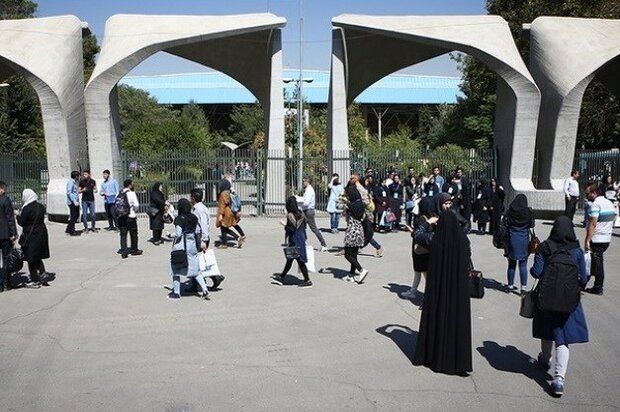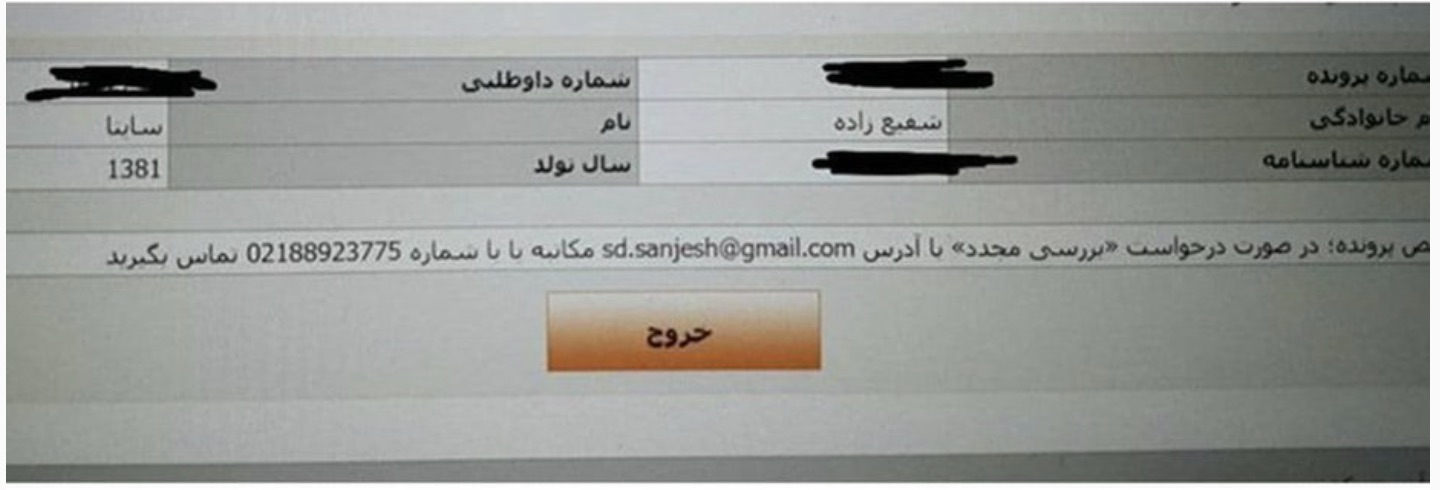Source: bbc.com
Translation by Iran Press Watch

On the occasion of the announcement of the results of the national examination for university entrance, a number of Baha’i students have stated that, as has been the case in the previous years, they have again been barred from entering university.
Yesterday, the head of the country’s education assessment and evaluation organization announced that the final results of the national entrance exam in 2020 were published on the organization’s website, and 189,948 individuals were accepted. Baha’i students reportedly visited the assessment and evaluation organization’s website and found that their names were labeled “incomplete application” and they have been “excluded” from the results of their national entrance examination “without any explanation.”
Mehdi Mahmoudian, a human rights activist in Iran, tweeted: “Setareh Izadi, Kimia Manouchehri, Shahrzad Mohammadzadeh, Arya Sheikh Zavareh, Marjan Abbaspooli, Parsa Seyed Ahmad, Vahid Sadeghi, Faran Ghodratian, Mobina Hooshmandi, Arshia Eshraghi and Kian Laghai are among Baha’is who met the score requirements and the required ranks in their exam results, but they were excluded and prevented from continuing their education at public universities, under the pretext of incomplete application.”
Depriving Baha’i students of higher education is not new, and those who admit to being Baha’is are systematically barred from higher education as well as their social and civic rights.

According to the Constitution of the Islamic Republic, the right to education is one of the fundamental rights of the people. As stated in the third paragraph of the third Article of the Constitution, education, development, and physical training for all, at all levels, and the facilitation of higher education to the general public, are free.
Also, in the Universal Declaration of Human Rights and in the International Covenant on Economic, Social and Cultural Rights, which have been ratified by the Government of Iran, access to higher education, regardless of race, color, gender, language, religion or political opinion, is considered a right.
Despite the emphasis in the Constitution and International Conventions, on February 25, 1991, according to the “confidential” orders of the Supreme Council of the Cultural Revolution, in case Baha’is do not openly express that they are Baha’is, they will be registered in the grade school, but at the university level, at any stage, if officials find out about their Baha’i religion, they should be expelled.
Following the announcement of once again depriving and banning Baha’i students from entering universities, this old order of the Supreme Council of the Cultural Revolution, endorsed by Ayatollah Ali Khamenei, a member of the council at the time, has resurfaced on social media again.
Mustafa Neili, a lawyer, in response to the students’ deprivation, wrote: “In practice, based on the illegal resolution of the Supreme Council of the Cultural Revolution, they prevent the education of Baha’i compatriots; however, in their speeches they claim that we do not mistreat anyone because they are Baha’is.”
On Twitter, a user named “Atish” mentioned a number of candidates who have been expelled from school for this year’s entrance exam because they are Baha’is. He writes: “During Hassan Rouhani’s two terms in office, not only was there no opening up about the prevention of Baha’i youth from university education, but as in all the years after the revolution, the discriminatory actions increased.”
In response to the news, Mehdi Mahmoudian, a human rights activist, wrote: “We have deprived two generations of our Baha’i compatriots, who went through their elementary and high school years while enduring thousands of humiliations and insults, of their right to higher education. Now it is the turn of their third generation. “Do you hear this, you who claim to have the world’s greatest democracy? Three consecutive generations of citizens of this country have been deprived of the right to higher education.”
Leave a Reply